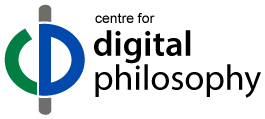- Submit
-
Browse
- All Categories
- Metaphysics and Epistemology
- Value Theory
- Science, Logic, and Mathematics
- Science, Logic, and Mathematics
- Logic and Philosophy of Logic
- Philosophy of Biology
- Philosophy of Cognitive Science
- Philosophy of Computing and Information
- Philosophy of Mathematics
- Philosophy of Physical Science
- Philosophy of Social Science
- Philosophy of Probability
- General Philosophy of Science
- Philosophy of Science, Misc
- History of Western Philosophy
- Philosophical Traditions
- Philosophy, Misc
- Other Academic Areas
- More
Being Itself and the Being of Beings: Reading Aristotle's Critique of Parmenides (Physics 1.3) after Metaphysics
Epoché: A Journal for the History of Philosophy 22 (2):271-291 (2018)
Abstract
The essay studies Aristotle’s critique of Parmenides in the light of the Heideggerian account of Platonic-Aristotelian metaphysics as an approach to being in terms of beings. Aristotle’s critique focuses on the presuppositions of the Parmenidean thesis of the unity of being. It is argued that a close study of the presuppositions of Aristotle’s own critique reveals an important difference between the Aristotelian metaphysical framework and the Parmenidean “protometaphysical” approach. The Parmenides fragments indicate being as such in the sense of the pure, undifferentiated “is there” —as the intelligible accessibility of meaningful reality to thinking, prior to its articulation into determinate beings. For Aristotle, by contrast, “being itself” has no other plausible meaning than “being-something-determinate as such”, which itself remains equivocal. In this sense, Aristotle can indeed be said to conceive being in terms of beings, as the being-ness of determinate beings.Author's Profile
Analytics
Added to PP
2018-01-04
Downloads
2,849 (#3,486)
6 months
349 (#4,642)
2018-01-04
Downloads
2,849 (#3,486)
6 months
349 (#4,642)
Historical graph of downloads since first upload
This graph includes both downloads from PhilArchive and clicks on external links on PhilPapers.
How can I increase my downloads?

